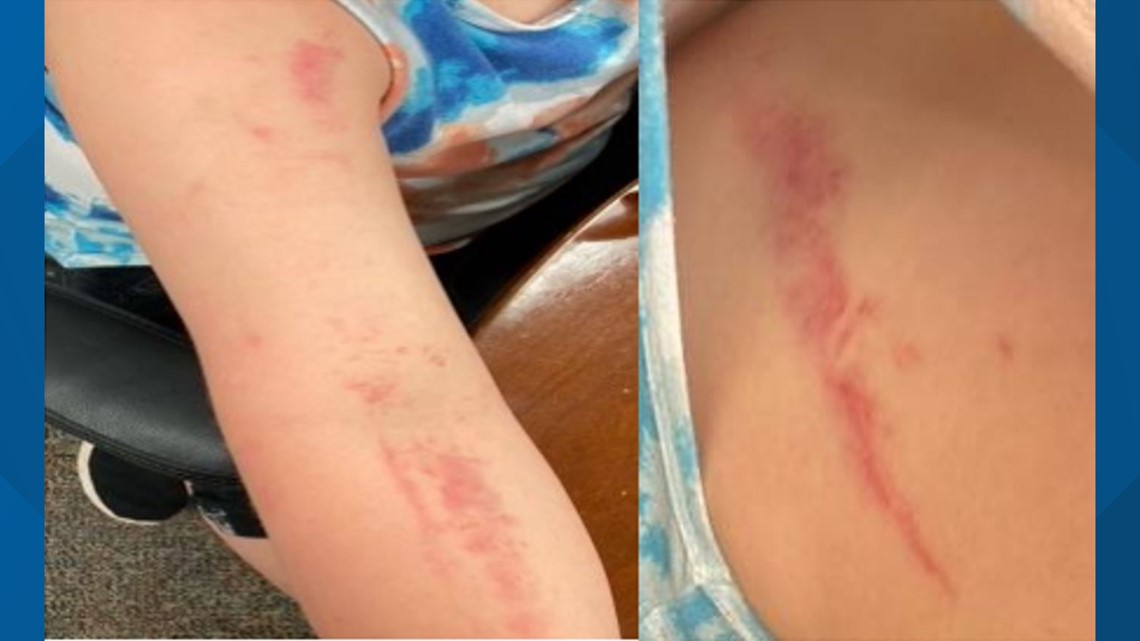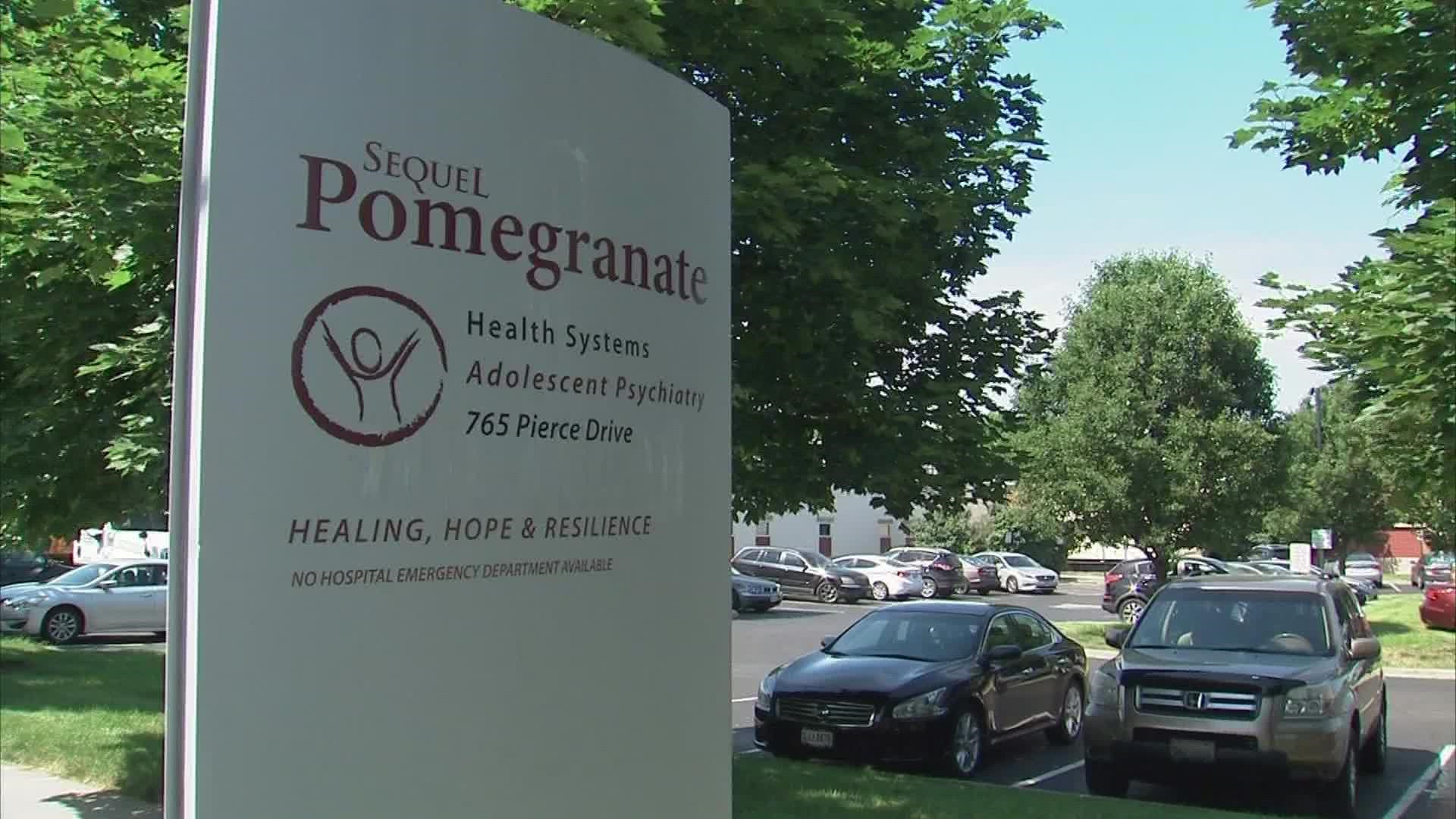COLUMBUS, Ohio — A photograph shows a child with red marks on his arms and shoulder.
The marks came from a staff member at a youth behavioral treatment facility who allegedly struck him with a tree branch.
That was just one finding in an investigation conducted by New Mexico’s Children, Youth and Family Services Department looking at abuse and neglect allegations at Bernalillo Academy – a youth behavioral treatment facility owned and operated by Sequel Youth and Family Services.


Inspectors also found problems with children running away, peer on peer violence and that the facility failed adequately background check its employees.
The facility is now closing – one of several Sequel-owned facilities that have closed in recent years amid allegations of violence, abuse and neglect.
With regard to the child who was struck with a tree branch, the report noted “this finding is particularly concerning as it occurred in a residential treatment facility by training staff…”
The July report also noted that staff failed to prevent children from hurting each other.
“There is just a rampant culture of peer on peer violence,” said Carrisa Tashiro, a staff attorney with Disability Rights New Mexico, who spoke to 10 Investigates in early December.
The problems uncovered at this New Mexico facility closely mirror problems at other Sequel-owned properties, including Sequel Pomegranate in Columbus. After attempting to re-open and re-brand itself as Torri Behavioral Health earlier this year, the Columbus building announced it would close its doors in October.
The closure of Sequel Pomegranate followed more than two years’ worth of reporting by 10 Investigates, which uncovered substantiated incidents of violence and sexual abuse along with allegations of other mistreatment and improper restraints.
Franklin County Children Services, the main supplier of referrals for children to Sequel Pomegranate, stopped sending kids there in March 2020, which deeply cut into Sequel Pomegranate’s ability to operate.
By July 2020, the children were removed. But by January 2021, the facility attempted what would ultimately become a failed re-opening and re-branding effort as Torii Behavioral Health. The facility, while treating only a handful of children, announced it would cease operations in October and relinquish its licenses to the state.
The move came after the Ohio Department of Mental Health and Addiction Services had twice threatened to revoke the facility’s licenses.
Similar allegations of abuse, neglect and improper restraints have led closures at Sequel facilities in other states like Utah, Illinois, Michigan, Iowa and Ohio. One improper restraint last summer resulted in the death of a teen at a now-closed Sequel facility in Michigan.
10 Investigates left phone calls and emails Thursday with Sequel’s co-founder, Jay Ripley, seeking comment about the future of his company. We also sent emails to those connected to Bernalillo Academy and with Sequel Youth and Family Services in Alabama. We have not heard back from anyone yet.
In wake of these allegations and closures, former residents of Sequel Pomegranate are now asking the state of Ohio to permanently sever ties with Sequel or any of its affiliates.
Sequel’s co-founder Jay Ripley recently started another venture called Vivant Behavioral Health, which has sought business licenses in states like Arizona, Kansas and Alabama. None has been filed in Ohio.
But that hasn’t stopped former residents here in Ohio from pushing the state to commit to never work with Sequel Youth and Family Services or its affiliates again.
A group of former Pomegranate youths recently met via conference call in late October with Director Lori Criss with the Ohio Department of Mental Health and Addiction Services, the department that licensed Sequel Pomegranate and other youth behavioral facilities.
The group has had subsequent meetings and says it has future meetings planned as well with Criss and other state officials.
Addison Torrence, a former Sequel Pomegranate resident, told 10 Investigates in an interview that he feels encouraged that the state is willing to listen to past residents.
His group is asking that the state sever all ties with Sequel or its future iterations; that seclusion and restraint end and that children in congregate care know their rights and have the ability to file a grievance, among other requests.
“The state is very receptive. I think they are wanting to work with us to prevent things like this from happening again.
What happened at pomegranate was horrendous. At this point no seriously disputes that,” Torrence said.
An OHMAS spokesman acknowledged that the two parties met in late October, releasing this statement:
“At their request, my team and I met today with former patients of Sequel Pomegranate. I personally wanted to listen to their experiences and reaffirm my commitment to all Ohio youth who receive care and treatment in behavioral health facilities. I appreciate and value their personal stories and their passionate advocacy to make sure Ohioans have access to high quality care that protects them, helps them heal, and assures them of their patient rights.”
10 Investigates did reach out to OHMAS asking for a follow-up question on if the state would commit to the request to sever ties with Sequel.
A spokesman wrote back Thursday afternoon:
“Director Criss has met twice with former patients of Sequel Pomegranate and has a third meeting scheduled in January. OhioMHAS is committed to ongoing meetings with them and others to discuss their recommendations. While we cannot make any obligations related to hypothetical situations, including actions that Sequel may take in the future, we can commit to a thorough review, assessment, and discussion of changes the state should consider to further ensure patient safety and the right to quality services and treatment settings.
As a reminder, the Ohio Department of Mental Health and Addiction Services took legal action pursuant to repeated code violations that ultimately resulted in the closure of Sequel’s residential and inpatient facilities in Ohio. Subsequently, there has been no application submitted by Sequel, Torii, or Vivant to operate any program of any type in Ohio. Our current regulatory authority does not permit us to predetermine the approval or disapproval of an applicant before an application is made. Each application for licensure is considered on its own merit in accordance with the licensure requirements for that provider type. Ohio Administrative Code permits OhioMHAS to consider repeated violations of statutes or rules as well as patterns of serious non-compliance when considering revocation or denial of a license. Currently, our rules do not specify the consideration of incidents that occur at facilities out of state when deciding on the issuance of a license. As part of our meetings with the youth advocates, we are reviewing opportunities to consider other ways of approaching this issue in Ohio’s practices and exploring how other states approach this policy and practice area.”

